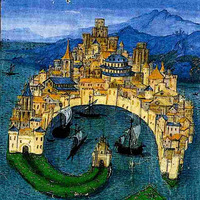- Professore ordinario di Filosofia teoreticaedit
Research Interests:
The 1755 Lisbon earthquake was widely discussed by the most famous Enlightenment philosophers, from Voltaire to Rousseau to Kant; this dreadful event not only spelt the end of theodicy, but it also gave rise to a new trust in the... more
The 1755 Lisbon earthquake was widely discussed by the most famous Enlightenment philosophers, from Voltaire to Rousseau to Kant; this dreadful event not only spelt the end of theodicy, but it also gave rise to a new trust in the scientific knowledge. This trust and the "myth" of progress, though, have beendefinitively shattered by the destructive power of technology emerged in the First World War. Ernst Jünger, "seismograph" of this catastrophe, interprets it as a "total mobilization" and as a telluric tremorthat is still rocking our planet in its foundations. Only if we recognize that we are children and guests of the Earth, we will be able to ward off the final catastrophe of our history. *** Alla mia città, "l'infelice Messina", in ricordo di quella catastrofe che, nel 1908, la rase al suolo.
From its very first steps, Derrida’s thought engages a close confrontation with Husserlian phenomenology in order to take distance from it. My thesis is that, in spite of a claimed “fidelity” to phenomenological method, Derridian thought... more
From its very first steps, Derrida’s thought engages a close confrontation with Husserlian phenomenology in order to take distance from it. My thesis is that, in spite of a claimed “fidelity” to phenomenological method, Derridian thought of differance has as its own preferential critical target phenomenology itself, intended as thought of the living present, of presence and of evidence. Starting from this thesis, deconstruction may be read first of all as deconstruction of phenomenology. It shows the irreducible character of the “non-phenomenological,” which every phenomenology tries to conceal as its own limit, as testified by Derrida’s analysis of gift and secret. These belong to the thought of sur-vival, which reveals death – the non-phenomenological par excellence – in the heart of life.
Research Interests:
Research Interests:
Research Interests:
Research Interests:
Heidegger interprete di Hölderlin
